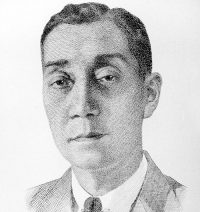The course of history is a cycle. The present becomes past and the past returns to the present. The future is something forever to be hoped for. The dungeons of Fort Santiago, past reminders of Spanish tyranny, are now being used by the Japanese. In some dark cell, Theo, an old family friend, is languishing. Many others are there too, including a woman. The dark ages have returned.
Stayed in the office till eight. Yoshio Noya has been appointed Supervisor of NARIC. S. Terada, who speaks English well, is his assistant. Japanese civilians have been placed as supervisors, but actually they are in charge of various sections. I hope they are not arrogant.
One-third of 10,000 pounds of the stock of yeast will be sold twice a week in limited amounts. For this purpose, bakeries operated by Filipinos, Spaniards, and Swiss may secure application blanks from the office and after approval, they can take yeast from the San Miguel Brewery.
Had a long conference with a Japanese officer who asked a lot of questions. Didn’t give his name. Neither do I know his rank. These people are quite secretive about their names and ranks.
Formulated a plan for rice rationing. Secured passes for De Leon personnel, who will go to the provinces to see their harvest.
Plan on the proposed regimentation of the palsy industry:
(1) NARIC organization must be expanded.
(2) Farmers will be told to harvest and thresh their palay.
(3) NARIC will guarantee purchase of palay and only NARIC will be authorized to buy and sell the cereal.
(4) NARIC to take care of transportation, warehousing and milling.
(5) Japanese Army will solve the question of financing.
(6) Operate whenever practicable in Nueva Ecija, Pangasinan, Pampanga, Tarlac, Bulacan, and Rizal.
(7) Most important is to get palsy into bodegas and convert it into rice without delay. There are only three months left. Must act now. Otherwise, there will be many losses.
There are a lot of factors to be considered in the regimentation of the harvest. The end is good: the procurement of rice for distribution to the people. But several points must be given due consideration, such as: guerilla warfare, lawlessness, Japanese sentries and their abuses. Passes must be given by the Japanese Army to producers to avoid molestation by soldiers and being commandeered for forced labor. The poor condition of roads, the wrecked bridges, the lack of trucks and fuel must also be taken into consideration. What about warehousing? Mills? Sacks? Prices? It is better not to take a leap in the dark. Nothing is lost by caution, study, preparedness.
On my way home, saw Japanese soldiers beating an old man in the cross section of Azcarraga and Legarda. In a house nearby, there was a celebration, a birthday perhaps. Life is tears and laughter. What is death?
